Family matters – support for elders living alone
In some cultures, extended families still live together. Or at least in the same neighbourhood – supporting one another throughout the various stages of life, from childhood to old age.
But in Western society, it’s less common for different generations to live together. Many older people are fiercely independent and enjoy the freedom that comes from living alone. It means you can do whatever you want, when you want. A selfish attitude perhaps. But, when you’ve spent your whole life looking after others, and putting their needs and wants first, it can be gloriously liberating!
On the down side, if you aren’t able to get out much, you may become socially isolated and suffer from loneliness. When you’re not feeling well, there’s no one to take care of you, or offer words of sympathy and encouragement. And cooking for one can seem like too much of an effort. It’s all too easy to make do with a dinner of bread and jam instead of a proper meal!
Family support
As the adult child of a parent living alone, you may not know how much, or what type, of support to offer. You don’t want to interfere. But you also want to be there for them, and make sure they’re safe.
We’ve all read stories in the media about old people who’ve died alone at home, and days, or even weeks, passing before anyone realised. Even worse is the thought of your mom or dad suffering a paralysing stroke, and being unable to move or even call out for help. Would they lie for days – in pain, hungry and thirsty – before help arrived? Or do you have plans in place to prevent such a possibility? Here are eight thing s to consider.
1. Check in often
Some old age homes and assisted living facilities have a staff member knock on each resident’s door every day, calling out a cheery, “Good morning,” and waiting for a response before moving on. Lack of response triggers prompt
investigation.
You can establish a similar system for a parent living alone. Call or WhatsApp every morning. If there’s no response, contact a neighbour to check on them, or visit if possible.
2. Get to know the neighbours
Establishing good relationships with neighbours provides an additional safety net. Apart from providing opportunities for social interaction, good neighbours may drop off a casserole, offer to do grocery shopping, pick up a prescription, or provide a lift to church.Sharp-eyed neighbours, including children, are often the first to realise that an elderly person may need help. Make sure they know who to call in case of emergency.
If meeting neighbours face to face is out of the question, find out if there is a neighbourhood WhatsApp group and get mom or dad to join it. Let members of the group know that they live alone, and appreciate someone checking on them from time to time.
3. Encourage social activity
Living alone can lead to loneliness. Encourage mom or dad to maintain a wide circle of friends. It’s important to talk to at least one other person every day, whether that’s greeting a neighbour, phoning a friend, or meeting friends or family for coffee and a chat. Maintaining social contact not only helps you feel connected, it is also beneficial to others. Reaching out to check on someone else – how they’re feeling, what they’re doing, and asking after their family – is important for both parties.
4. Use a companion service
If your parent has no close friends and you live too far away to visit often, consider using a paid companion service. Paid companions are screened and trained to offer pleasant social interaction. Even a couple of hours a week can make a big difference for elderly people who feel cut off and isolated.
5. Get an ICE bracelet
If mom or dad goes out shopping or walking on their own, encourage them to get an ICE (In Case of Emergency) bracelet. You can buy them online from https://iceid.co.za/ or https://ice-tags.co.za. The bands provide identification and details of who to contact in an emergency. You can also add medical information, such as blood group or allergies, which could save mom’s life if she suffers an accident or illness that renders her unconscious.
6. Make a list of emergency contacts
Get mom or dad to jot down phone numbers of nearby friends or neighbours, family members, their doctor, chemist, etc and leave it somewhere you can find it easily.
7. Keep a check on chronic medication
Forgetfulness often accompanies ageing. For those who take chronic medication, such as blood pressure tablets, the consequences of forgetting to take the medication … or taking it twice … could be very serious indeed. Make sure your parent has a simple medication management system, and that prescriptions are up to date. If necessary, call in once a week to help him or her fill the pill organiser.
8. Have the difficult conversation
No matter how independent your parent is, there are things you need to know. Are they still on medical aid or has this become unaffordable? If so, can you add them to your own medical aid?Have they made a Will and where is it kept? Does this include a Living Will – to ensure their wishes will be carried out in a health crisis, if they are unable to
speak for themselves?
Are they still able to manage their affairs or should they consider giving you Power of Attorney?
If you are an elder living alone through circumstance or choice, and you don’t have family support, you can still follow these tips. Just substitute a good friend or neighbour for family members. If you are struggling, contact Tafta for support. Our Social Workers are trained to offer advice and assistance, as well as information on other support services geared to helping you make the most of life.


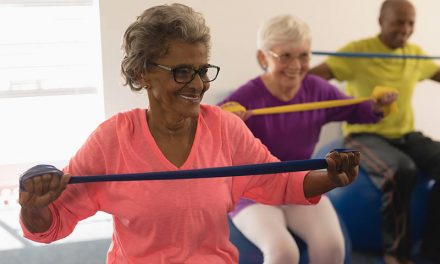
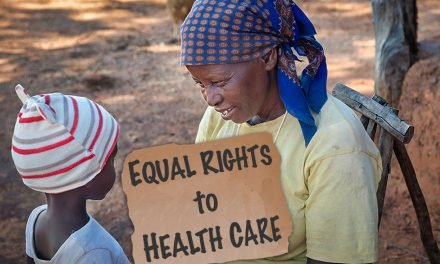
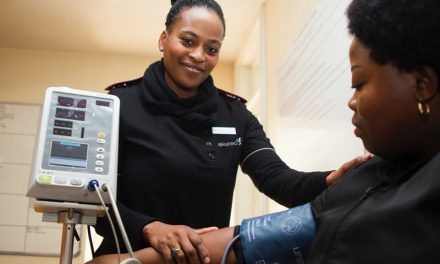

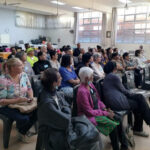 Open Days at Tafta – explore safe and supportive accommodation options.
Open Days at Tafta – explore safe and supportive accommodation options. 67 minutes for 67 years – you helped tick off 67 much-needed items
67 minutes for 67 years – you helped tick off 67 much-needed items Alzheimer’s Awareness Day – breaking down the stigma
Alzheimer’s Awareness Day – breaking down the stigma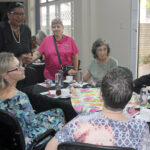 Always better to say, ‘thank you’ in person
Always better to say, ‘thank you’ in person “Back in Time” with our resident volunteers!
“Back in Time” with our resident volunteers! More than 200 older persons shine at Tafta sports day
More than 200 older persons shine at Tafta sports day Sixteen-year-old leads heartfelt drive to support Tafta
Sixteen-year-old leads heartfelt drive to support Tafta Keeping elders connected – WiFi is in the building!
Keeping elders connected – WiFi is in the building! Elders’ safety prioritised with new fencing at Tafta Park
Elders’ safety prioritised with new fencing at Tafta Park Understanding Parkinson’s Disease: Causes, Symptoms, and Risk Factors
Understanding Parkinson’s Disease: Causes, Symptoms, and Risk Factors